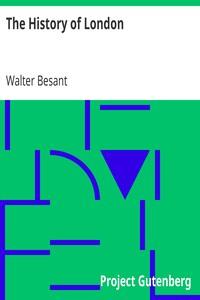Read this ebook for free! No credit card needed, absolutely nothing to pay.
Words: 40239 in 20 pages
This is an ebook sharing website. You can read the uploaded ebooks for free here. No credit cards needed, nothing to pay. If you want to own a digital copy of the ebook, or want to read offline with your favorite ebook-reader, then you can choose to buy and download the ebook.
th all his own ships and all the pirate's ships--including fifteen Spanish vessels which had joined Mercer.
The King pretended to be angry with this private mode of carrying on war, but the thing was done, and it was a very good thing, and profitable to London and to the King himself, therefore when Sir John Philpot gave the King the arms and armour of a thousand men and all his own ships and prize ships, the Royal clemency was not difficult to obtain. I wish that I could state that Whittington had sailed with Sir John on this gallant expedition.
A third trouble arose in the year 1381 on the rebellion of the peasants under John Ball, Wat Tyler, Jack the Miller, Jack the Carter, and Jack Trewman. The rebels held possession of the City for awhile. They destroyed the Savoy, the Temple and the houses of the foreign merchants . They murdered the Archbishop of Canterbury and the Prior of St. John's Hospital. Then the citizens roused themselves and with an army of 6,000 men stood in ranks to defend the King.
Then there happened the troubles of John of Northampton, Mayor in 1382. You have learned how trades of all kinds were banded together each in its own Company. Every Company had the right of regulating prices. Thus the Fishmongers sold their fish at a price ordered by the Warden or Master of the Company. It is easy to understand that this might lead to murmurs against the high price of fish or of anything else. This, in fact, really happened. It was a time of great questioning and doubt; the rising of Wat Tyler shows that this spirit was abroad. The craftsmen of London, those who made things, grumbled loudly at the price of provisions. They asked why the City should not take over the trade in food of all kinds and sell it to the people at lower prices. John of Northampton being Mayor, took the popular view. He did not exactly make over the provisioning of the City to the Corporation, but he first obtained an Act of Parliament throwing open the calling of fishmonger to all comers; and then another which practically abolished the trade of grocers, pepperers, fruiterers, butchers, and bakers. Imagine the rage with which such an Act would now be received by London tradesmen!
The next Mayor, however, obtained the rescinding of these Acts. In consequence, fish went up in price and there was a popular tumult, upon which one man was hanged and John of Northampton was sent to the Castle of Tintagel on the Cornish Coast, where he remained for the rest of his life.
In the year 1384, being then about twenty-six years of age, Whittington was elected a member of the Common Council. In the year 1389 he was assessed at the same sum as the richest citizen. So that these ten years of his life were evidently very prosperous. In the year 1393 he was made Alderman for Broad Street Ward. In the same year he was made Sheriff. In the year 1396, the Mayor, Adam Bamme, dying in office, Whittington succeeded him. The following year he was elected Mayor.
In the year 1401, water was brought from Tyburn to Cornhill in pipes, a great and important boon to the City.
In the year 1406 he was again elected Mayor. The manner of his election is described in the contemporary records. After service in the chapel of the Guildhall, the outgoing Mayor, with all the Aldermen and as many as possible of the wealthier and more substantial Commoners of the City, met in the Guildhall and chose two of their number, viz., Richard Whittington and Drew Barentyn. Then the Mayor receiving this nomination retired into a closed chamber with the Aldermen and made choice of Whittington.
In the year 1419 he was elected Mayor for the third and last time, but, counting his succession to Bamme, he was actually four times Mayor. In 1416 he was returned Member of Parliament for the City.
In Whittington's later years began the burning of heretics and Lollards. It is certain that Lollardism had some hold in the City, but one knows not how great was the hold. A priest, William Sawtre, was the first who suffered. Two men of the lower class followed. There is nothing to show that Whittington ever swerved from orthodox opinions.
In 1416, the City was first lighted at night: all citizens were ordered to hang lanterns over their doors. How far the order was obeyed, especially in the poorer parts of the City, is not known.
In 1407 a plague carried off 30,000 persons in London alone. If this number is correctly stated it must have taken half the population.
Free books android app tbrJar TBR JAR Read Free books online gutenberg
More posts by @FreeBooks


: Bruin: The Grand Bear Hunt by Reid Mayne Zwecker Johann Baptist Illustrator - Adventure and adventurers Fiction; Hunting Fiction; Voyages around the world Fiction; Brothers Fiction; Bears Fiction









